
End of the road: Hong Kong alliance behind June 4 candlelight vigil was a thorn in Beijing’s side for decades
- Group had wide support in Hong Kong, but leaders knew activities incurred Beijing’s displeasure
- Formed to help Tiananmen Square protesters, alliance disbands in wake of national security law
A saddened John Sham Kin-fun, filmmaker and a former committee member of the alliance, told the Post: “Mourning the victims of the Tiananmen Square crackdown is the fundamental right of Hong Kong people. The dissolution of the alliance marks the end of freedom of assembly and expression in Hong Kong.”
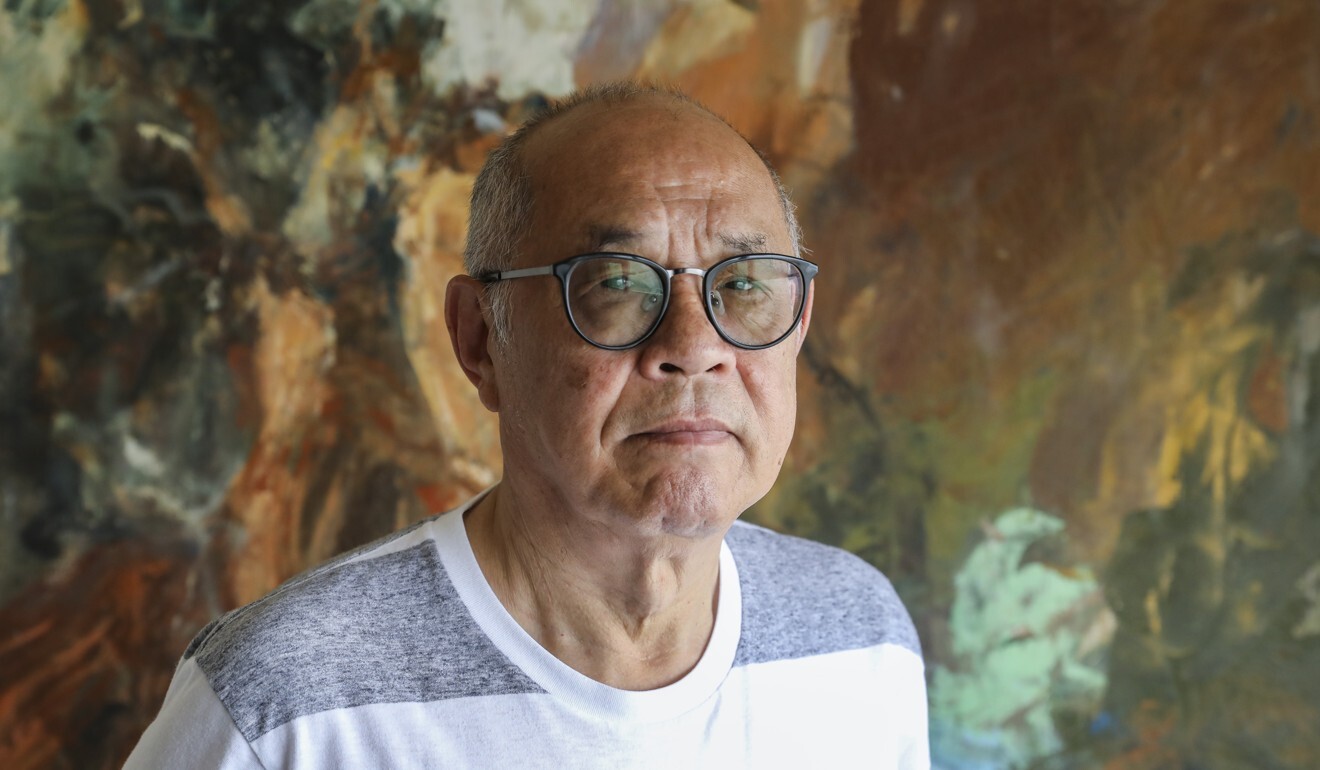
Since Hong Kong’s return to China in 1997, the survival of the alliance had been regarded as a test of the freedom Hongkongers continued to enjoy, despite ever present signs that its days could be numbered.
The group was established hastily after a protest on May 20, 1989, when tens of thousands took to the streets despite torrential rain to oppose the imposition of martial law in Beijing.
The Chinese authorities’ move signalled a crackdown on student-led protests that had gone on in Tiananmen Square since that April, following the sudden death of reformist Chinese leader Hu Yaobang who had been ousted as the Communist Party’s general secretary two years earlier.
As tensions heightened in Beijing, an estimated 1 million people marched in Hong Kong for a second day, on May 21.
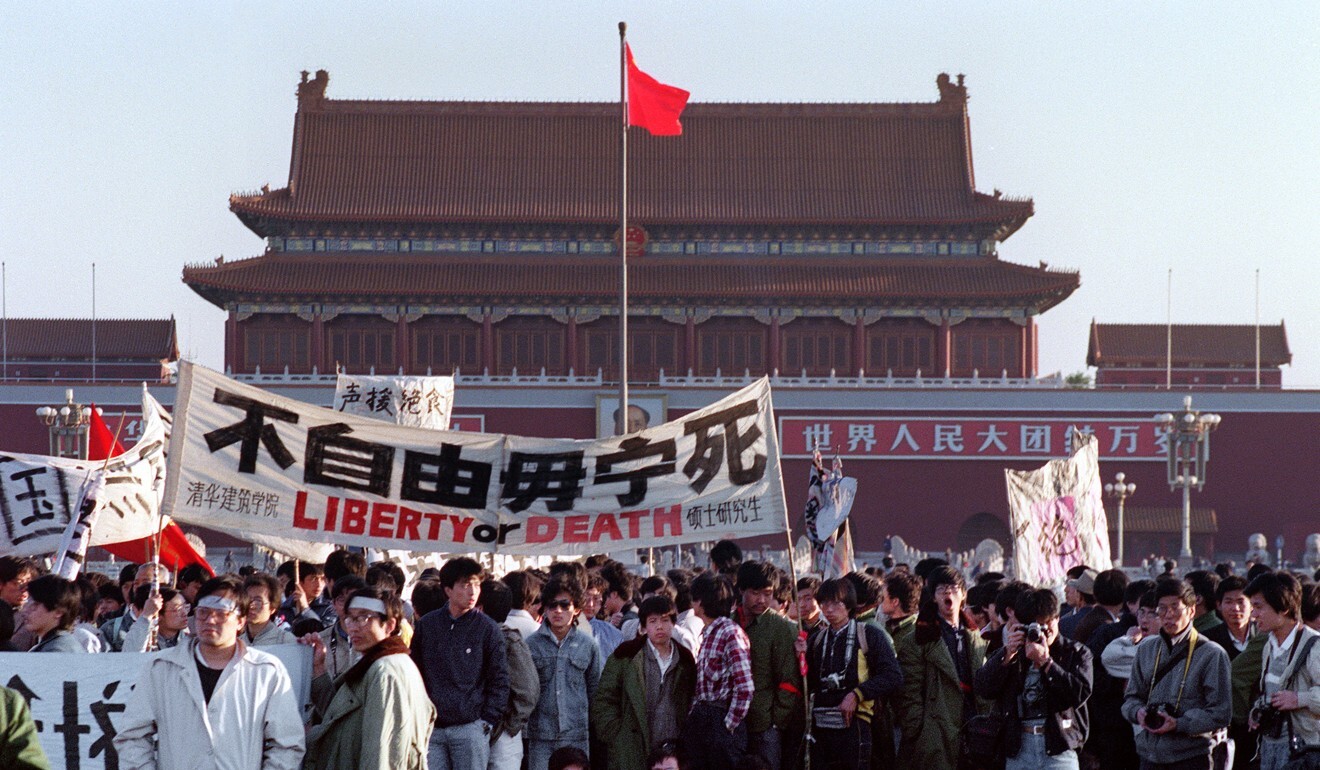
By the end of the march the alliance was formed, with pro-democracy lawmaker Szeto Wah, founder of the Professional Teachers’ Union, as its chairman.
The Tiananmen Square demonstrations lasted nearly eight weeks, with student leaders protesting against corruption and calling for democratic reforms. They ended with the crackdown on June 4, when military tanks rolled into the square, leaving hundreds dead and more missing.
The students’ call for democracy on the mainland had resonated in Hong Kong, where people donated substantial sums to support the protesters.
The Joint Committee for the Promotion of Democracy, a Hong Kong coalition of 91 pro-democracy groups set up in 1986, was among a number of organisations that took part in small-scale protests in the city to show their support for the opposition movement in Beijing.
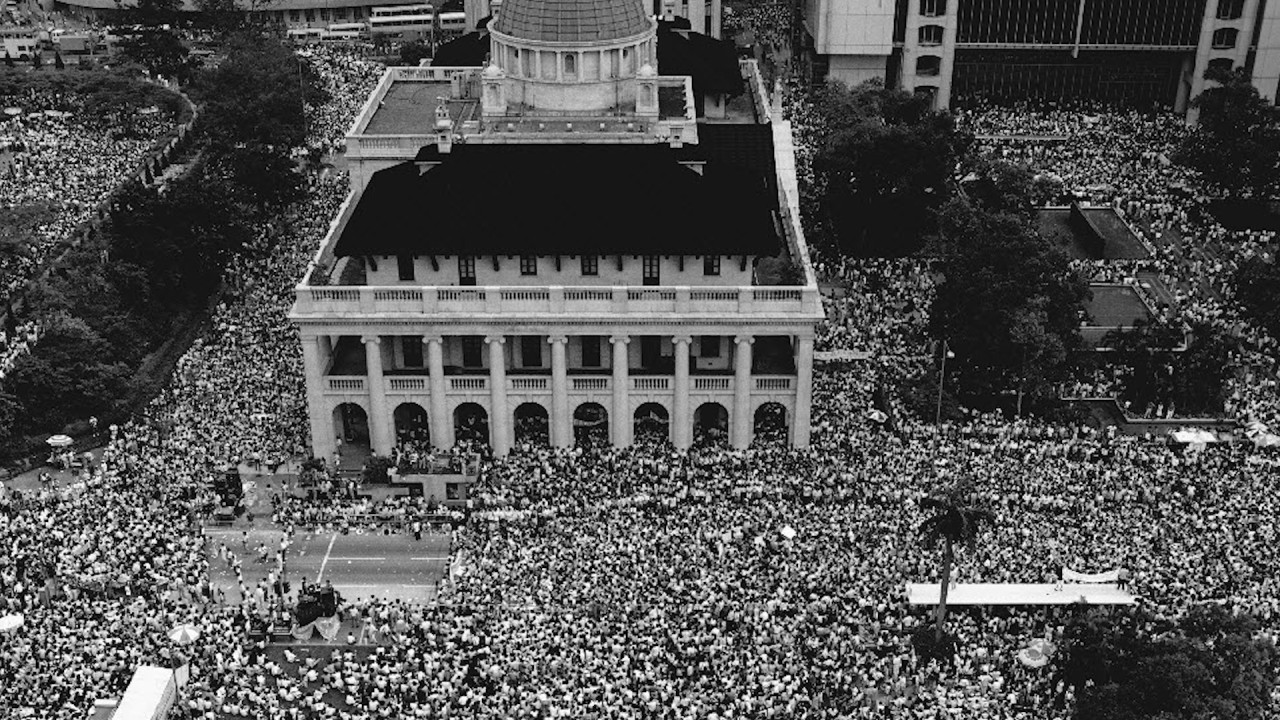
06:29
Thirty years on, why Hongkongers remember China's Tiananmen crackdown
Szeto, who died in 2011, recalled in his memoir that it was the protest on May 20, 1989 that prompted the joint committee to form a dedicated organisation to support the mainland student movement.
As an umbrella body, the alliance brought together representatives of 212 local groups – labour, religious, political and community-based – to coordinate joint actions. The core members included pro-Beijing heavyweight Jasper Tsang Yok-sing, who would later be Legislative Council president from 2008 to 2016.
Szeto wrote that it was filmmaker Sham who suggested organising the alliance’s historic Concert for Democracy in China fundraiser at the Happy Valley racecourse on May 27, a week before the crackdown.
Sham told the Post it was comedian Eric Tsang Chi-wai who approached him on behalf of a group of actors and singers to suggest holding a concert to raise funds for the student protesters in Beijing.
Tiananmen Square vigil group in Hong Kong denies it threatens national security
Sham said he contacted lawmaker Martin Lee Chu-ming, the alliance’s vice chairman, who in turn approached the then chief executive of the Hong Kong Jockey Club, Major-General Guy Watkins.
“And the rest is history,” Sham said.
More than 300,000 people turned up for the concert which featured Canto-pop stars such as Anita Mui Yim-fong and Andy Lau Tak-wah and Taiwanese singer Teresa Teng.
The event raised about HK$12 million for the alliance, some of which was delivered to the student leaders in Beijing.
After the June 4 crackdown, the alliance financed Operation Yellowbird, which helped about 150 dissidents on Beijing’s most-wanted list to leave the mainland.

Starting from 1990, it organised the annual candlelight vigil in Hong Kong’s Victoria Park, remembering the crackdown and demanding that Beijing acknowledge the facts of what happened.
The alliance had five goals: the release of dissidents, vindication of the 1989 student movement, accountability for the crackdown, an end to one-party rule in mainland China and the building of a democratic country.
From the start, it was branded subversive by Beijing, which regards the 1989 democracy movement as an attempt to overthrow the communist regime. Many alliance members have been banned from entering the mainland.
For almost three decades, the annual vigil at Victoria Park was the only event of its size on Chinese soil to mark the anniversary of the crackdown.
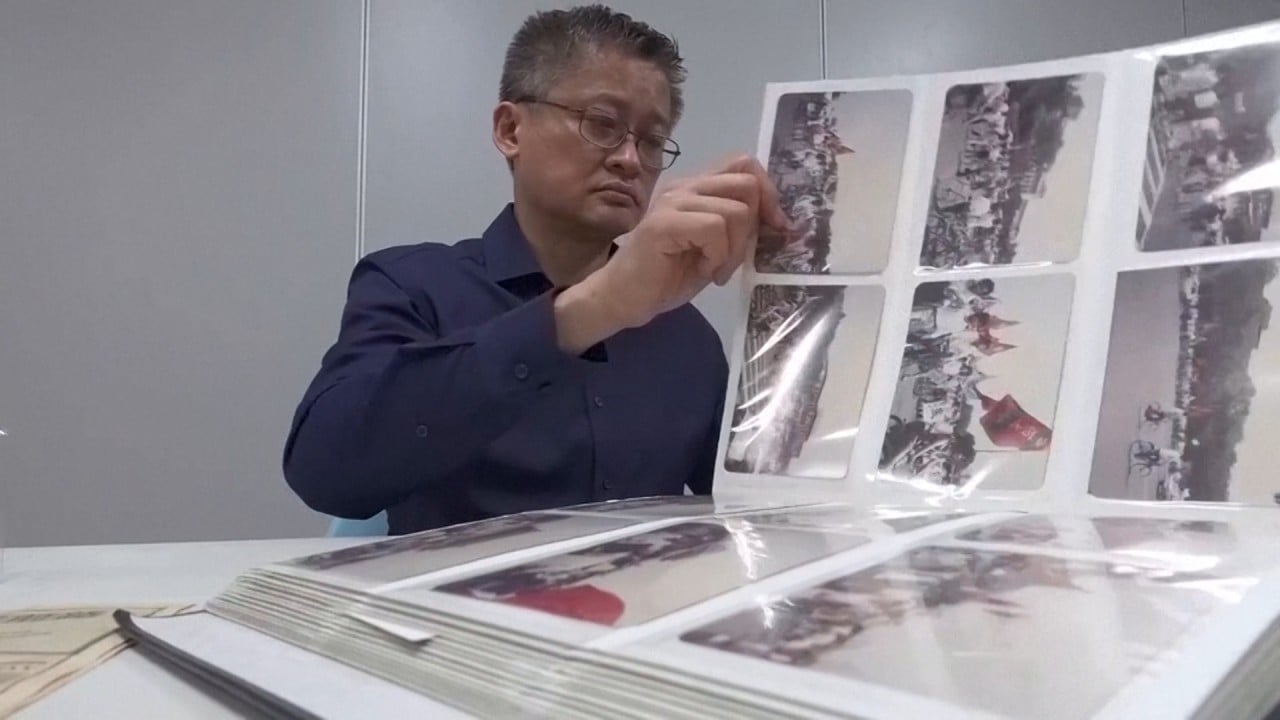
04:31
Hongkongers vow to remember Tiananmen Square crackdown, despite ban of annual vigil
Attendance peaked twice to about 180,000 in 2012 and 2014, but diminished in recent years amid the rise of localism sentiments, with some Hong Kong student leaders urging a boycott because they considered it more worthwhile to fight for greater democracy in the city rather than the rest of China.
Organisers said a record turnout of more than 180,000 attended the 2019 vigil, although the police set the figure at 37,000 at its peak.
Over the years, it was plain that the alliance was a thorn in Beijing’s side, and authorities never stopped trying to persuade its leaders to disband.
Core member of June 4 vigil group urges members to resist calls to disband
Allen Lee Peng-fei, founding chairman of the pro-business Liberal Party, revealed in his memoir in 2004 that former Hong Kong governor David Wilson had asked him to find a “resolution” for the alliance.
“David Wilson felt that the alliance was a major impediment to the relationship between Beijing and Hong Kong … so I spoke to Szeto Wah and asked him to disband his organisation. After listening to me, without saying anything, he just left,” Lee wrote.
Szeto himself revealed that while in office, Hong Kong’s first postcolonial leader, Tung Chee-hwa, stopped short of asking him to disband the alliance but asked him three times between 1997 and 1999 to stop organising activities commemorating June 4.
National security police investigating Hong Kong group behind annual Tiananmen vigil
Szeto said he did not heed Tung’s call to “lay down the baggage of June 4 and move forward”.
Hongkongers showed their support for the alliance not only by turning up at the annual vigil, but also by donating to the group.
Szeto had a tradition of writing fai chun – calligraphic scrolls with messages of good fortune – which were sold at the alliance’s stall at the annual Lunar New Year fair at Victoria Park.
He recalled spending more than 100 hours writing more than 10,000 scrolls, hoping they would sell at HK$20 apiece and raise HK$200,000 for the alliance.
“There was one time that someone donated HK$10,000 for one scroll. It showed Hongkongers’ immense support for us,” he wrote. He died of cancer in January 2011, aged 79.
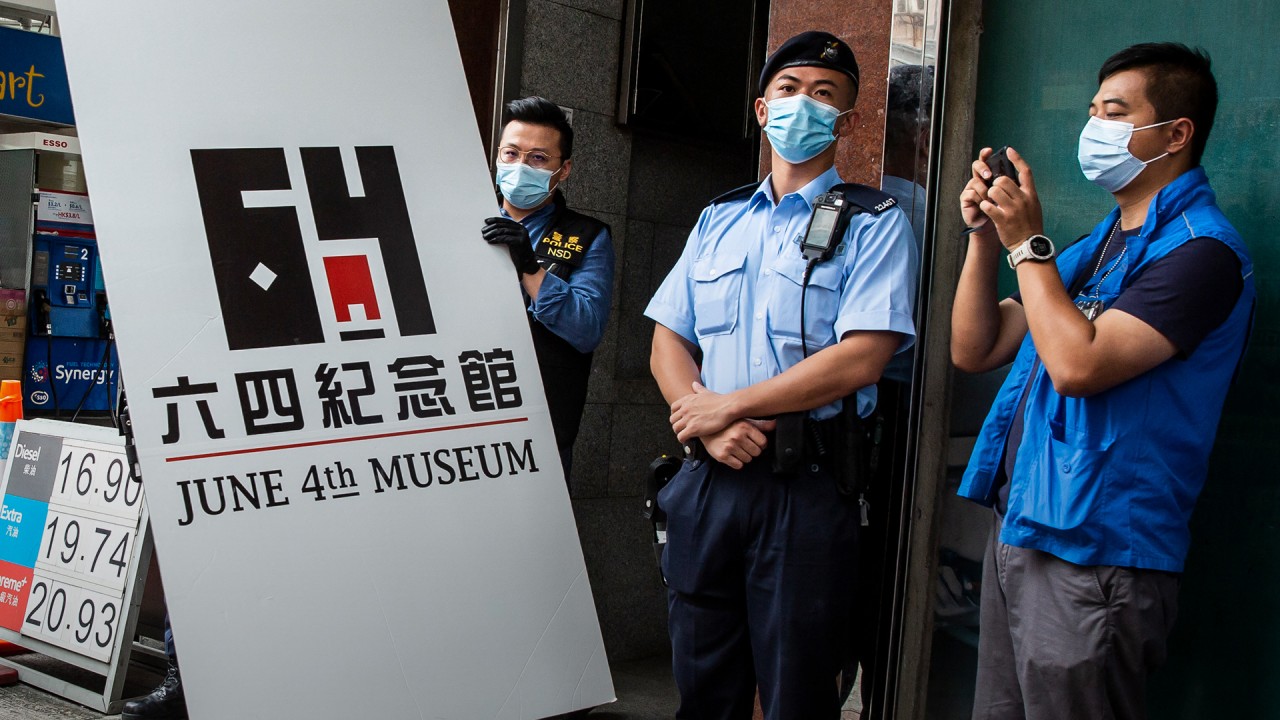
01:44
Hong Kong police raid opposition group’s museum collecting evidence for national security law case
The alliance found itself under increasing political pressure since then, with pro-establishment figures arguing that one of its stated goals, calling for the end of one-party rule on the mainland, amounted to subversion and flouted the law.
He did not name names, but the message was clear.
On Saturday, the 32-year-old alliance became the latest opposition organisation to fold since the national security law’s arrival.
Members of Hong Kong’s biggest teachers’ union vote to disband after 47 years
Last month, the Professional Teachers’ Union founded by Szeto announced it was disbanding after the government severed ties with the opposition-leaning body and police warned of further action.
Days later, the Civil Human Rights Front, the umbrella group behind many of Hong Kong’s largest protests, decided to shut down too.
Richard Tsoi Yiu-cheong, a former vice-chairman of the alliance, said the group expected tough times after the 1997 handoveras China was ruled by the Communist Party.
“We were relatively optimistic after the first few years of the handover as it seemed Beijing had come to terms with the fact that the existence of the alliance was part of ‘one country, two systems’,” he said, referring to the principle of governance for the city after its return to China.
As protest group folds, police and Beijing warn legal troubles not over
“But the situation deteriorated quickly after the introduction of the national security law last year and civil society groups with a longer history, like the Professional Teachers‘ Union, disbanded amid mounting political pressure.
“It was just a matter of time before the alliance was targeted by the authorities.”
Filmmaker Sham lamented: “Many Hongkongers of the older generation fled the mainland for fear of losing their fundamental rights. It is a person’s fundamental right to speak his or her mind and express different opinions. What’s the point of surviving if such rights are deprived?”


